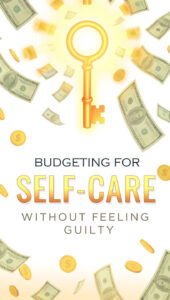Now Reading: How to Make a Bi-Weekly Budget That Works 📆💵🧠
-
01
How to Make a Bi-Weekly Budget That Works 📆💵🧠
How to Make a Bi-Weekly Budget That Works 📆💵🧠
Because living paycheck to paycheck doesn’t have to feel like walking on eggshells.
If your paychecks come every two weeks, budgeting can feel like a constant game of “wait until Friday.”
Some weeks feel tight. Others feel like there’s breathing room… and then it vanishes.
The secret?
✨ A bi-weekly budget that aligns with your paydays—not just the calendar.
In this guide, I’ll show you how to build a bi-weekly budget that actually works—so you’re not guessing where your money went, or crossing your fingers mid-month.
Let’s build a plan that brings clarity, not chaos. 💗

🧾 Step 1: Know Your Paycheck Amounts (After Taxes)
Start by writing down the exact amount you receive every two weeks—after taxes, deductions, and automatic transfers.
If your income is fixed, perfect.
If it fluctuates a bit (like with tips, commissions, or freelance), use your lowest average to play it safe.
💡 Always budget based on what you’re sure of—not what you hope for.
🗓 Step 2: List Your Monthly Bills + Due Dates
Now, grab a blank sheet or open Notion/Google Sheets and list:
-
All your fixed bills (rent, electricity, phone, internet, subscriptions, insurance, etc.)
-
The due date for each
This is where most people go wrong—they try to budget monthly, but their bills and income don’t sync up.
Your goal: Split these bills across your two pay periods, so each paycheck feels balanced—not overburdened.
✂️ Step 3: Split Your Expenses Into Paycheck 1 & Paycheck 2
Let’s say you get paid on the 1st and the 15th. Here’s how you might split things:
Paycheck #1 Covers:
-
Rent (if due on the 1st or before the 10th)
-
Utilities
-
Groceries (first half of month)
-
Transportation
-
Minimum debt payments
Paycheck #2 Covers:
-
Phone bill
-
Subscriptions
-
Groceries (second half)
-
Kids’ needs
-
Savings or sinking funds
You can color-code this for clarity (I recommend one color per paycheck) and put it on a visual calendar.
It makes a world of difference when you see how things line up.
🛒 Step 4: Break Down Your Variable Spending
After fixed expenses, break your variable spending (like groceries, gas, dining out) into weekly or bi-weekly chunks.
For example:
-
$300/month groceries → $150 per paycheck
-
$60/month gas → $30 per paycheck
-
$40/month fun money → $20 per paycheck
💡 Pro tip: Withdraw this money in cash or keep it in separate digital “envelopes” to avoid accidental overspending.
🧠 Step 5: Build a Buffer (aka: Your Life-Saver Fund)
This is huge. Even $20–$50 per paycheck can make a difference.
Use it to:
-
Cover surprise school fees
-
Avoid overdraft charges
-
Take care of small emergencies without using a credit card
Eventually, your goal is to build up one full paycheck saved in advance, so you’re always budgeting with money that’s already in your account—not waiting for the next deposit to survive.
✨ This one shift can reduce stress more than anything else.
🧘♀️ Why a Bi-Weekly Budget Just Makes More Sense
Monthly budgeting assumes that money arrives once and smoothly flows through the month.
But real life isn’t like that—especially for families, single moms, or anyone in between jobs, growing a side hustle, or living on a single income.
Bi-weekly budgeting puts the power back in your hands.
It meets you where you are. It helps you stay ahead of due dates, avoid overdraft fees, and stop that dreadful mid-month panic.
And when your money starts feeling predictable, your confidence goes up. You breathe easier. You feel safer.
Now let’s take it further—because a great bi-weekly budget doesn’t just help you stay afloat, it helps you move forward. 💪✨
Here’s how to create a simple, powerful bi-weekly budgeting system you’ll actually want to stick with.
📋 1. Build Your Bi-Weekly Budget Template (Notion or Printable)
Whether you prefer digital or paper, the layout matters. Here’s the structure I recommend:
🧾 For Each Paycheck:
-
Pay Date:
-
Total Income (Net):
-
Fixed Bills Due This Period:
-
Rent
-
Utilities
-
Phone, etc.
-
-
Groceries (for 2 weeks):
-
Fuel/Transport:
-
Spending Allowance (Fun money):
-
Savings or Buffer:
-
Sinking Funds (like birthdays, holidays):
-
Leftover or Roll Over:
💡 This format helps you see exactly where your paycheck is going before you spend it.
You can create this in Notion, Google Sheets, or even a printable tracker taped to your fridge.
Need a free Notion template? DM or comment “Biweekly” and I’ll share mine.
📆 2. Take Advantage of “Magic Third Paycheck” Months
Here’s a golden tip most people overlook:
If you get paid bi-weekly, you’ll receive 3 paychecks in 2 months out of the year.
Most people waste this third check… but not you. 😉
🪄 How to use it:
-
Build or boost your emergency fund
-
Pay off a chunk of debt
-
Catch up on annual bills (insurance, school fees)
-
Pre-load your sinking funds (holidays, birthdays)
💰 Treat it like a bonus—but use it like a boss.
🧠 3. Set “Paycheck Rituals” to Stay on Track
This one’s a game-changer for consistency.
Every payday, do a 20-minute check-in:
-
Look at what bills are due in the next 2 weeks
-
Divide your grocery/spending categories
-
Move money into savings or envelope folders (cash or digital)
-
Reflect: How did the last paycheck go?
Light a candle, play music, make it sacred.
💗 Budgeting should feel like caring for your future—not just number crunching.
📦 4. Use Sinking Funds for Peace of Mind
A sinking fund is money you save a little at a time for a future expense you know is coming.
Common ones:
-
🎄 Holidays
-
🧁 Birthdays
-
👩⚕️ Medical/Dental
-
🚗 Car repairs
-
🏫 Back-to-school
Even setting aside $10–$25 per paycheck for each can save you from debt or stress later.
💡 Create a section in your budget where you track each sinking fund’s goal, current balance, and next need-by date.
🔄 5. Roll Over & Adjust—Don’t Start From Scratch Every Time
Bi-weekly budgeting is fluid. You don’t need a brand-new plan each time.
Here’s how to keep it simple:
-
Copy your previous paycheck plan
-
Tweak amounts based on changes (bills, goals, spending)
-
Roll over any leftover cash or redirect it intentionally (extra to debt, savings, fun, etc.)
🧘♀️ Consistency over perfection always wins.
🌱 Final Thoughts: A Bi-Weekly Budget is a Form of Self-Care
If you’re constantly worried about making it to the next payday, you’re not “bad with money”—you’re just missing a system that works with your reality.
This isn’t about strict rules or shame. It’s about:
-
Spending with purpose
-
Planning with peace
-
Living with less stress
And when your budget feels like a tool you control, not a cage holding you in?
That’s when everything shifts.














